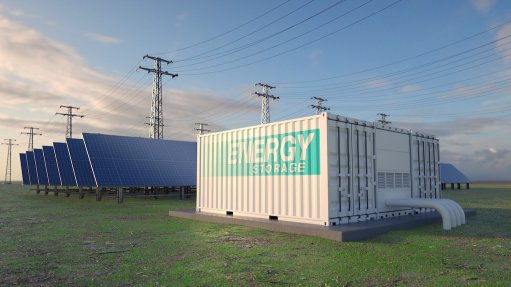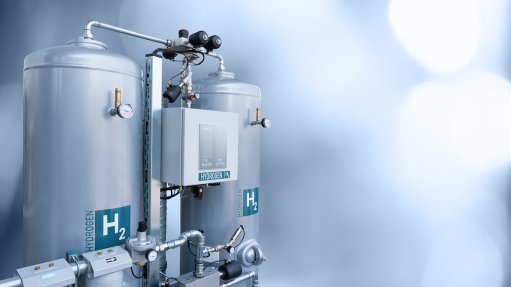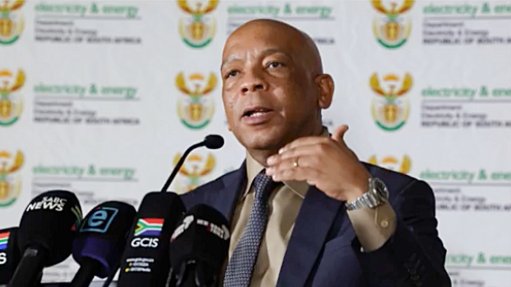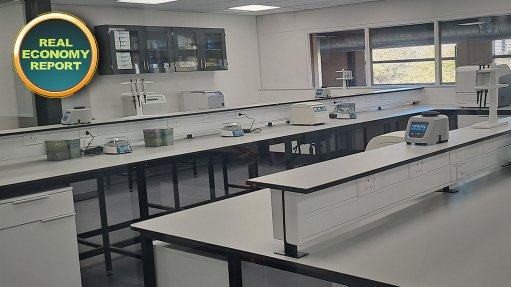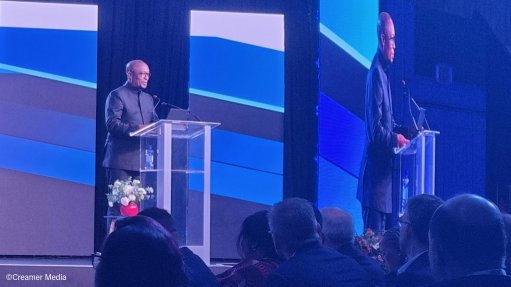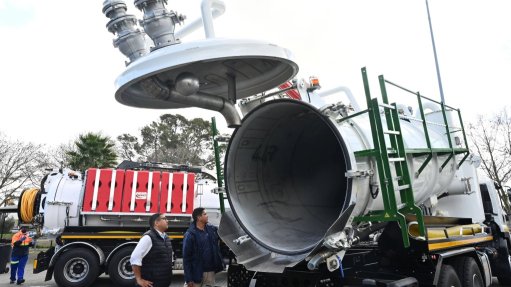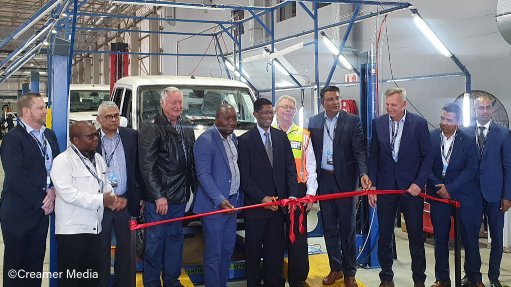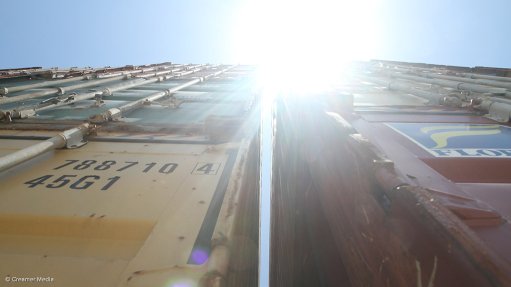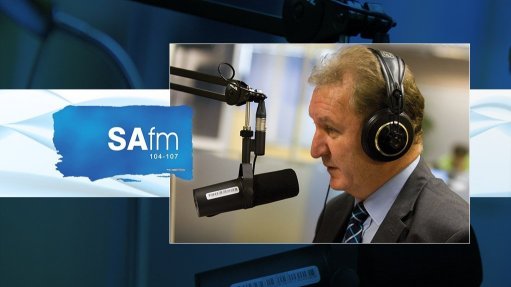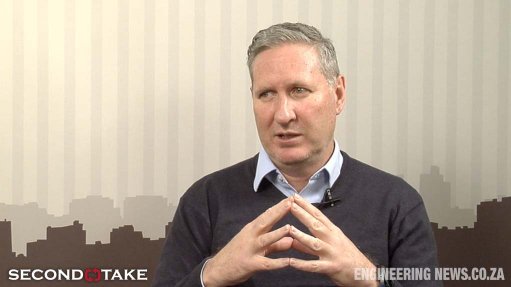100 MW reform ‘precursor’ to new market-driven electricity supply industry – De Ruyter
Eskom CEO Andre de Ruyter has described the decision to lift the licence-exemption cap on own- or embedded-generation plants from 1 MW to 100 MW as not only positive for addressing South Africa’s immediate electricity shortages, but also as “the precursor to the development of a new electricity supply industry in South Africa, which is going to be driven by far greater market dynamics than has hitherto been the case”.
In a virtual conversation directed by Citigroup chief country officer Peter Taylor as part of the SA Tomorrow conference, De Ruyter said the higher threshold would likely be an “important contributor to adding much-needed capacity to the grid”.
He noted that a Meridian Economics study had indicated that even raising the cap to 50 MW was likely to stimulate the development of 5 000 MW of new capacity over a five-year period, with no recourse to the taxpayer.
“But judging by the example of Vietnam, where they were able to add about 7 200 MW to the grid in a period of 18 months following similar deregulation, we are hopeful that we will see more capacity added to the grid sooner,” he said, stressing that the threat of load-shedding meant that this additional capacity was required “sooner rather than later”.
The Minerals Council South Africa has already indicated that its members are ready to invest R27-billion in the short to medium term in distributed-generation projects and that projects with a combined capacity of at least 1 600 MW could be "rapidly" introduced to the grid.
Intellidex capital markets research head Peter Attard Montalto has argued in a research note that the 100-MW reform was expected to add about 15 000 MW to the electricity system over the coming five to seven years and spur about R100-billion in first-order investment.
De Ruyter stressed that the move was also aligned with the policies already adopted to support a transition to a sustainable electricity supply industry; one that was currently hamstrung by the fact that the State-owned utility remained vertically integrated.
This point was underlined by Public Enterprises Minister Pravin Gordhan who told JSE chairperson Nonkululeko Nyembezi on the same SA Tomorrow virtual platform that government had recognised back in 2019 that Eskom would not be able to trade its way out of its unsustainability and, thus, had to undergo structural change.
“The Eskom unbundling, or restructuring, is very much part of that,” De Ruyter explained, arguing that the formation of a separate transmission company should act as a catalyst to enable significant additional private sector investment in generation capacity.
Subject to obtaining certain regulatory and legislative approvals, Eskom aims to have established the Independent Transmission System and Market Operator by December 31.
De Ruyter said private sector investment would help bridge the current shortfall, as well as facilitate a “future that is cleaner and greener” by investing in low- or no-carbon generation plants to meet demand and replace Eskom’s aged and increasingly unstable and polluting coal fleet.
Excluding Medupi and Kusile, the utility’s generation fleet is on average 41 years old and many of the power stations are due to retire over the next 10 to 15 years.
Depending on emissions restrictions, De Ruyter indicated that those retirement dates may have to be brought forward, as it would cost R300-billion for Eskom to fit its current fleet with the emission control equipment needed to make it environmentally compliant.
“Now the opportunity that emerges from this imminent threat is that one could see an opportunity for that money to be diverted into enabling far greater low- or no-carbon generation capacity.
“That’s the future that awaits us and we are restructuring ourselves to enable that future and to give investors confidence.”
However, he also argued that, as the policy and regulatory environment changed in a way that was supportive of greater generation competition and investment, independent power producers (IPPs) would also be expected to take on more risk.
“I anticipate that there will be far less availability of sovereign guarantees to support private investors.”
The model whereby IPPs were offered 20-year investment guarantees and yearly inflation adjustments was a “lovely business” that could not be sustained into the future.
“The private investor will have to take more business risk, but less regulatory and demand risks,” De Ruyter argued.
Comments
Announcements
What's On
Subscribe to improve your user experience...
Option 1 (equivalent of R125 a month):
Receive a weekly copy of Creamer Media's Engineering News & Mining Weekly magazine
(print copy for those in South Africa and e-magazine for those outside of South Africa)
Receive daily email newsletters
Access to full search results
Access archive of magazine back copies
Access to Projects in Progress
Access to ONE Research Report of your choice in PDF format
Option 2 (equivalent of R375 a month):
All benefits from Option 1
PLUS
Access to Creamer Media's Research Channel Africa for ALL Research Reports, in PDF format, on various industrial and mining sectors
including Electricity; Water; Energy Transition; Hydrogen; Roads, Rail and Ports; Coal; Gold; Platinum; Battery Metals; etc.
Already a subscriber?
Forgotten your password?
Receive weekly copy of Creamer Media's Engineering News & Mining Weekly magazine (print copy for those in South Africa and e-magazine for those outside of South Africa)
➕
Recieve daily email newsletters
➕
Access to full search results
➕
Access archive of magazine back copies
➕
Access to Projects in Progress
➕
Access to ONE Research Report of your choice in PDF format
RESEARCH CHANNEL AFRICA
R4500 (equivalent of R375 a month)
SUBSCRIBEAll benefits from Option 1
➕
Access to Creamer Media's Research Channel Africa for ALL Research Reports on various industrial and mining sectors, in PDF format, including on:
Electricity
➕
Water
➕
Energy Transition
➕
Hydrogen
➕
Roads, Rail and Ports
➕
Coal
➕
Gold
➕
Platinum
➕
Battery Metals
➕
etc.
Receive all benefits from Option 1 or Option 2 delivered to numerous people at your company
➕
Multiple User names and Passwords for simultaneous log-ins
➕
Intranet integration access to all in your organisation









